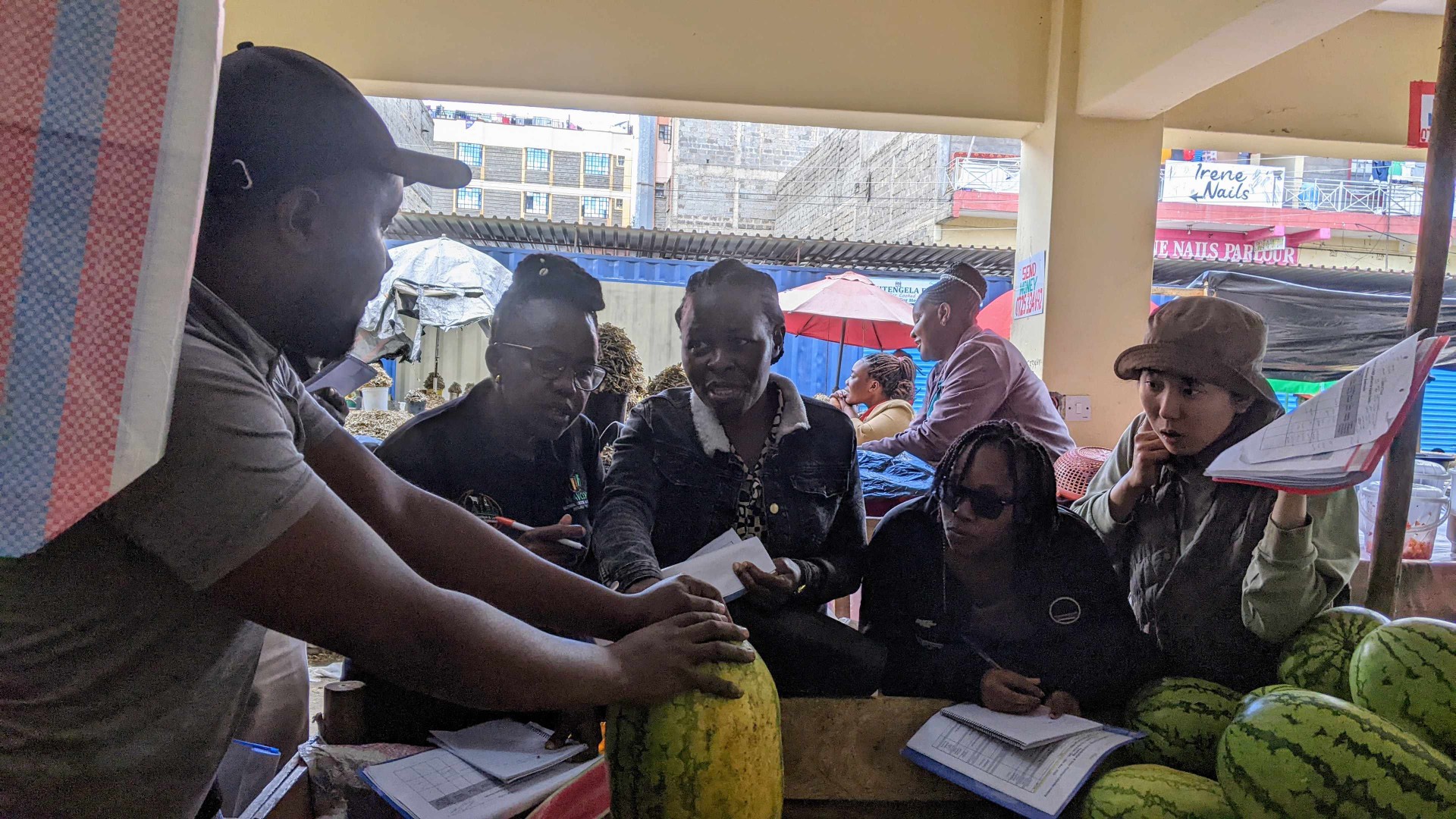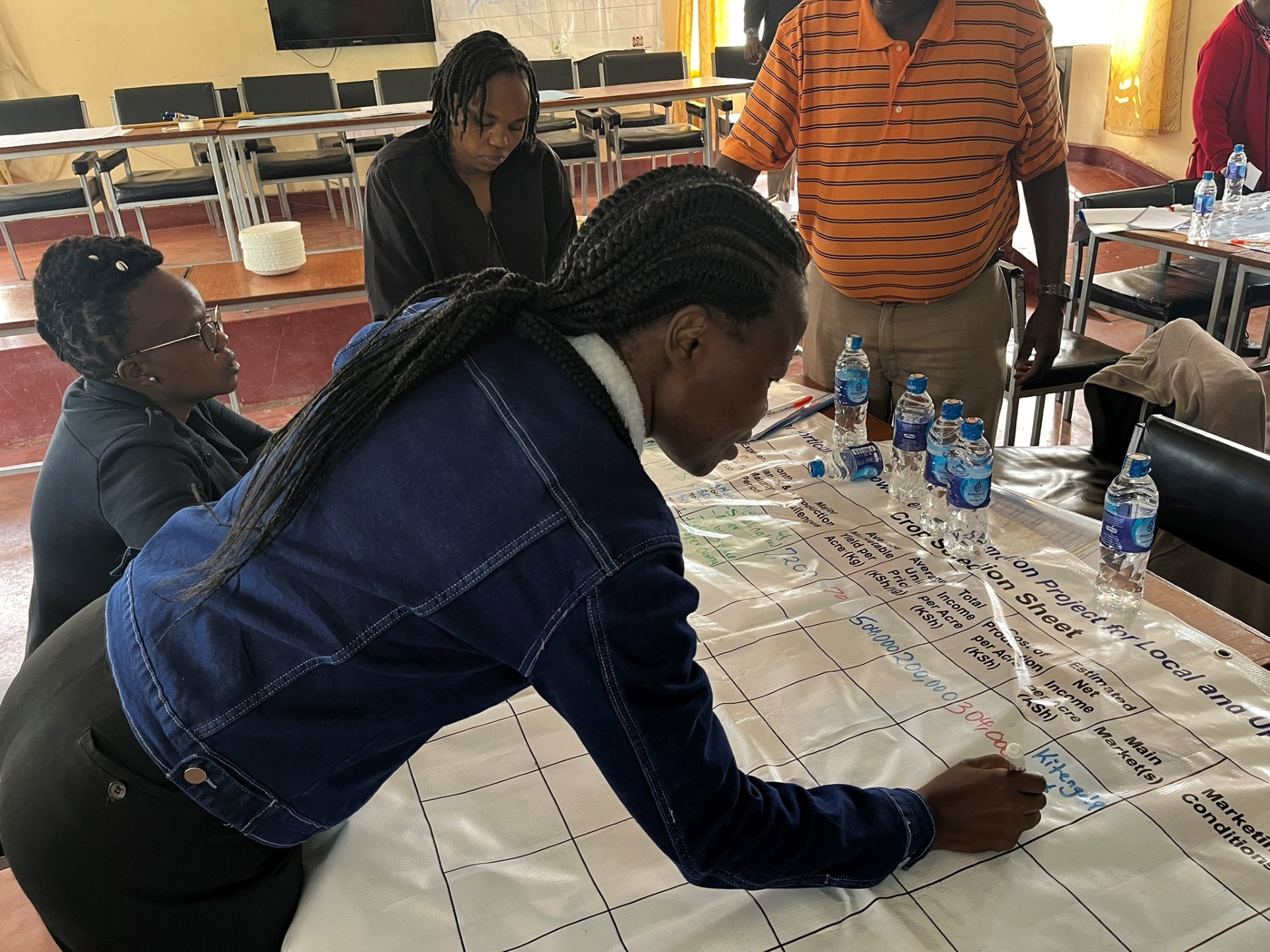Project News Volume 41
What I learnt by participating in the SHEP training
My name is Yumiko Kimura, JICA volunteer working in Litein, Bureti Sub-County, Kericho County. In Litein, many farmers plant tea and there is a Tea Factory. Their main cash crop is tea. On the other hand, farmers work for dairy farming and maize cultivation. They plant cabbages, beans and spring onions, too.
Since I heard sometimes that some farmers could not find market and spoiled produces, I thought SHEP approach should be effective in this region. SHEP approach changes farmers mindset from “Grow and Sell” to “Grow to Sell”. Thus, I received an opportunity to participate in SHEP ToT (Training of Trainers) for the agricultural extension officers in Kajiado County.
This training aims at the implementation of SHEP approach by each extension officer after the training. It was very impressive for me that this four-day training is interactive and participatory.
I was surprised that almost all of the lectures were given by Kenyan project staffs (officer of the Ministry of Agriculture). They used not only Englich but also Swahili in the lectures. Project staff know Kenyan culture, habit and life, so trainees can understand the content of the lectures more easily and deeply.
And county officers moderated the training, so they prayed, clapped hands in a local way and decided the roles for this training (ex. Governor, Spiritual Leader, Energizer, etc.). I could see the Kenyan culture for training that doesn’t exist in Japan. This training respect Kenyan local way and does not impose Japanese way, which I thought was ideal.
During the training, we exercised market survey and crop selection and made crop planting calendar, with assuming we are farmers. Also, we presented the results and discussed them together. Because of a series of exercises, the lectures and discussions were very interactive.
By taking part in this training as one participant, I could get to know the practical ways of SHEP approach like market survey, crop selection and crop planting calendar making and also, I gained valuable insight.
Now in my activity as a volunteer, I work on cultivation guidance of one crop because the government distributed its seeds and that crop is very new for this region.
During activity of crop selection in this training, we summarized the information of candidate crops including “Average marketable yield per acre”, “Average unit price” and “Cost of production”. And I could notice that yield of that new crop I provide cultivation guidance is much lower than these horticulture crops and the profit of that crop is low as well. I lacked the perspective to think whether the farmers can get good profit or not by growing that crop, because the seeds of that crop are distributed for free.
Through this training I learned that the farmers get more profit by exercising market survey, analyzing the information they gained and growing based on that information, which were not imposed from outside. SHEP training reminds me of having various perspectives. I would like to make use of this training in my volunteer activity.

Market survey exercise in Kitengela Market

Participants practiced crop selection
